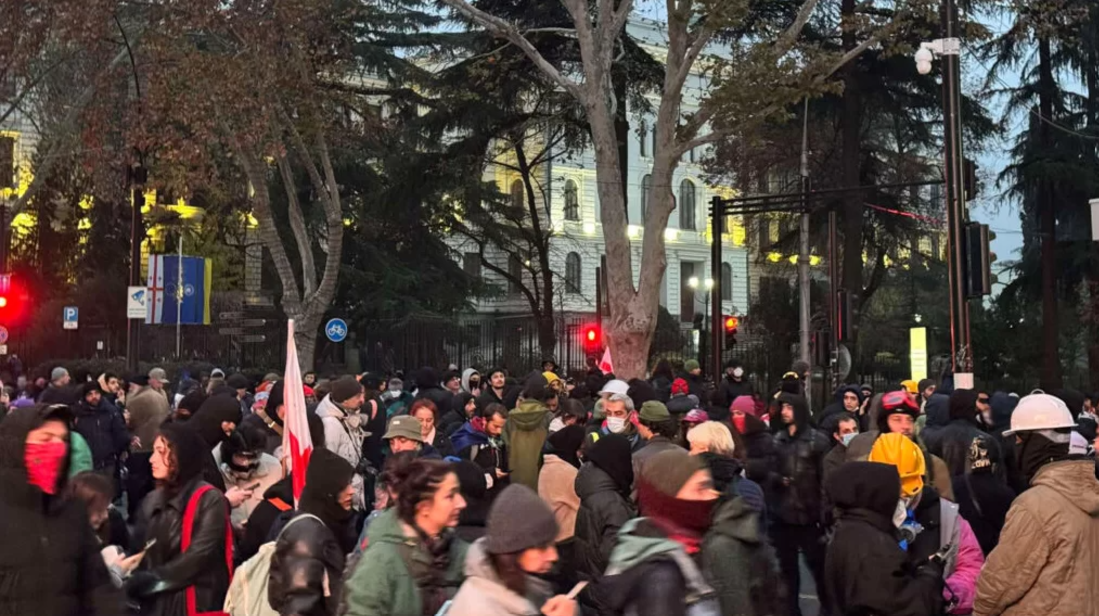Despite efforts by security forces to disperse the protest in Tbilisi, the demonstration in the Georgian capital continues.
As of the morning of December 1, anti-government protests in the capital of Georgia continue, despite repeated attempts by Georgian security forces to disperse the participants. In total, around 150 people were detained by the police during the first two nights of protests.
This was reported by News Georgia and Georgia Online.
 Protest action in Tbilisi. Source: “Georgia Online”
Protest action in Tbilisi. Source: “Georgia Online” According to local media, security forces began to disperse the participants of the anti-government protest in Tbilisi at 7 a.m. Vehicles equipped with water cannons, which periodically sprayed water on the protesters, moved toward Republic Square.
The protesters gradually moved away from Rustaveli Avenue and are now located on Chavchavadze Avenue near the first building of Tbilisi State University. Recently, law enforcement officials dismantled the tent city of the protesters at this location.
It is noted that during the night of December 1, special forces detained several individuals, including the producer of the Georgian service of “Radio Liberty,” Beka Beradze. In total, around 150 people were detained by the police during the first two nights of protests.
“Georgia Online” reports that on Chavchavadze Avenue, the protesters started a fire and brought tires to the site. Participants in the protest are providing each other with food.
Traffic has been blocked due to the protest on the avenue, and police have been mobilized in the surrounding area.
Recall that on the evening of November 29, in the capital of Georgia, Tbilisi, security forces dispersed a protest near the parliament, where participants came out to express their disagreement with the refusal to negotiate EU membership. The Ministry of Internal Affairs of Georgia reported the detention of 107 people.
Earlier, ZMINA reported that on November 28, 2024, the Georgian authorities decided not to start negotiations for EU membership until 2028. By that time, the country is also refusing to receive any budget grants from the European Union.
Subsequently, the Ministry of Foreign Affairs and the Ministry of Defense of the country began to boycott the government's decision to freeze the country's EU membership until 2028.